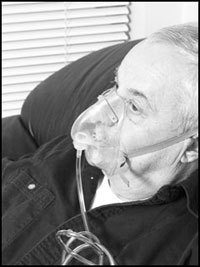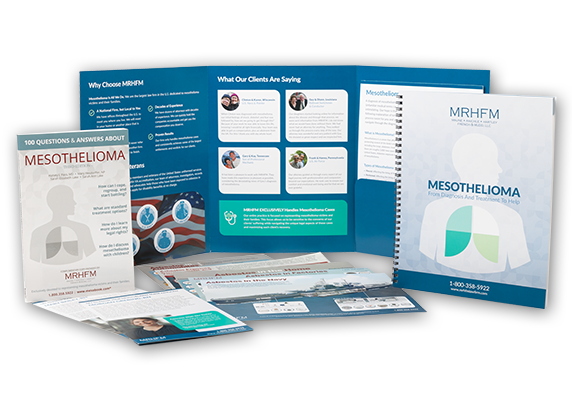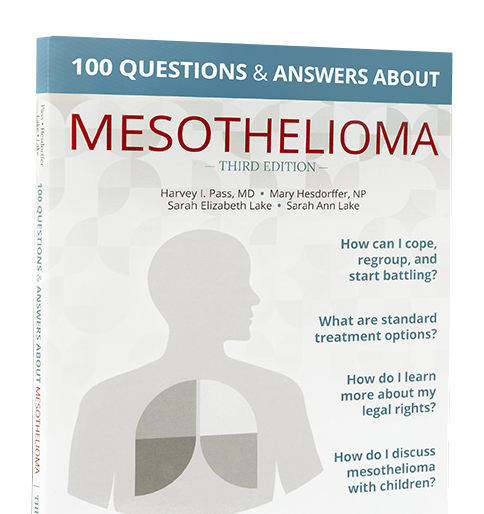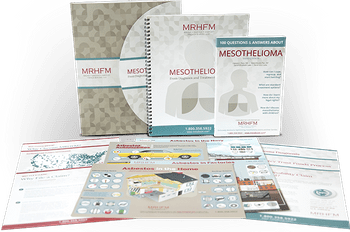What are the symptoms of Mesothelioma?
Pleural Mesothelioma causes a buildup of tumor tissue surrounding the lung. Fluid can build up in the pleural space, preventing the lungs from moving easily and expanding naturally. Pressure on the lungs caused by this buildup leads to pain and shortness of breath; two of the most common symptoms. If you are experiencing unexplained shortness of breath or pain in the chest area, you should consult a doctor as soon as possible.
 An individual with pleural mesothelioma (cancer in the lining around the lungs) may also experience:
An individual with pleural mesothelioma (cancer in the lining around the lungs) may also experience:
- Difficulty swallowing
- A persistent cough
- Coughing up blood
- Fever
- Sweating
- Fatigue
- Weight loss
- Back pain
- Pneumonia
An individual with peritoneal mesothelioma (cancer in the lining around the stomach) may experience:
- Pain or swelling of the abdomen
- Swelling of the feet
- Nausea
- Vomiting
- Hernia
- Difficult bowel movements
- Fluid in the abdominal cavity
- Chest pain
 An individual with pericardial mesothelioma (cancer in the lining around the heart) may suffer with the following symptoms:
An individual with pericardial mesothelioma (cancer in the lining around the heart) may suffer with the following symptoms:
- Chest pain
- Shortness of breath
- Trouble breathing
- Persistent coughing
- Chest or heart palpitations
An individual with testicular mesothelioma (cancer in the lining around the testis) may suffer the following symptoms:
- Appearance of a lump in the scrotum
- Swelling of the testicles
Experiencing some of these symptoms does not mean someone has mesothelioma. Only a doctor can make such a diagnosis; usually only after tissue or fluid has been tested. If a biopsy is performed, tissue will be withdrawn and stain tested and examined under a microscope. The tissue may be determined to be benign (non-cancerous) or malignant (cancerous). Staining will be used to determine the type of cancer and the types of cells involved (epithelial, sarcomatoid, or mixed/biphasic).
If fluid is drawn, the fluid or cytology will usually be collected through a fine needle aspiration. A syringe with a thin needle will be used to remove the fluid. The fluid samples or cells in the fluid can be stained and viewed under a microscope.
If you wish to learn more about mesothelioma, CLICK HERE to receive a free book written by medical professionals who have treated mesothelioma.



